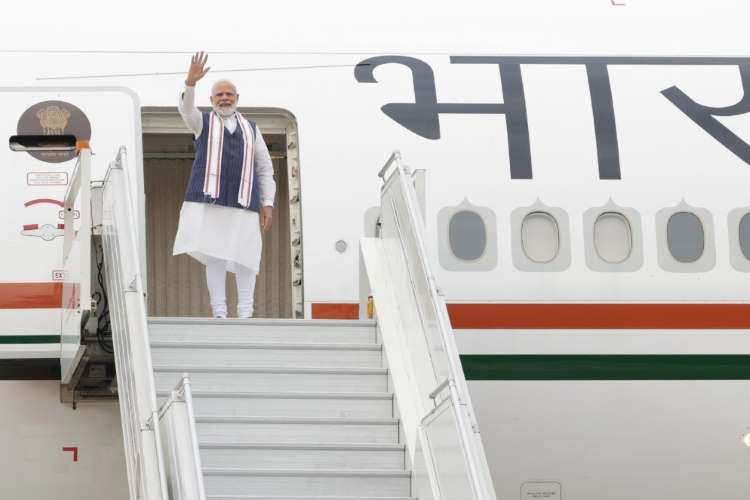
Prime Minister Narendra Modi is in the United States on a historic state visit. US President Joe Biden and First Lady Jill Biden will host the Prime Minister at a state dinner on June 22. Modi will also address the Joint Session of the US Congress. Here are some areas of cooperation that will be explored by India and the US during the visit.
Drug discovery, development, and manufacturing
Under the Inflation Reduction Act (IRA) in the US and the production-linked incentives (PLI) in India, numerous avenues for collaboration exist within the pharmaceutical supply chains of both countries. The US requires improved access to drugs for its entire population, and this can be facilitated by low-cost manufacturing in India. To thoroughly explore this aspect, a detailed study can be proposed in due course, provided there is initial interest on both sides.
The pharmaceutical industry is facing pressure to reduce costs, improve access to medicines, and address public health challenges. The IRA and the PLI scheme can effectively facilitate collaborations in the pharmaceutical sector. The IRA aims to reduce healthcare costs and improve access to affordable medicines, while the PLI scheme incentivizes domestic manufacturing and production.
READ I PLI scheme: Govt must address competitive imbalances, possible misuse
According to healthcare research firm 3 Axis Advisors, major drug manufacturers, including Pfizer Inc, GlaxoSmithKline PLC, Bristol Myers Squibb, AstraZeneca PLC, and Sanofi, were planning to increase prices on over 350 unique drugs in the United States in early January 2023. High prescription drug prices pose affordability challenges for patients and the healthcare system, with most price increases occurring in January or July each year.
While drug costs are rising in the USA, the opposite trend is observed in India. India’s pharmaceutical industry stands out globally due to its low-cost manufacturing, skilled workforce, and robust R&D infrastructure, attracting companies looking to outsource. The country’s strong domestic market and dominance in generic drug production also encourage partnerships with Western companies. The government plays a role in keeping medication affordable for citizens by maintaining its own drug store chain and partnering with small manufacturers.
Economic factors, such as competitive land rates, cheap labour, low-cost utilities, and affordable equipment, contribute to the industry’s ability to manufacture low-cost generic drugs, making it an attractive location for drug companies. The potential areas of collaboration can be explored in the following areas: Joint Investment, Technology Transfer, Regulatory Harmonization, and Public-Private Partnerships.
Modi visit: More items on agenda
Here are some other areas of possible collaboration that may be discussed:
Narcotics control
The menace of narcotic drug addiction is huge and worsening over time in both countries, mainly fuelled by geopolitical developments and neighbouring countries. We have proposed a discussion in this regard in the past in a published article (attached herewith), about a concerted set of efforts from the governments and CSR initiatives by private sectors. These proposed efforts aim at nurturing the supply chains that are currently focusing on producing these narcotics, and instead pivoting them into producing drugs that can be part of the pharmaceutical supply chains. FDA fee waiver and various other ideas may be explored under this topic.
Healthcare workers visa
Given the acute shortage of healthcare workers in the U.S., it will be highly desirable to mobilize trained workforce in this area in India and allow them to immigrate to the U.S. to enhance supply in this area, while also reducing healthcare costs for millions of Americans. India already has a decent supply of such human resources, which can further be trained and upgraded to cater to the U.S. market. This can be explored through a new type of visa that can be instituted for healthcare, medical care, and mental health workers.
Indigenous health systems
India’s ancient wisdom has many insights to offer to the modern health systems. The efforts of Government of India under the concept of AYUSH need to be taken to a global level, particularly in the U.S., to come up with a system of holistic medicine that combines the state-of-the-art modern medicine with India’s traditional wisdom coming from systems of Yoga, Siddha, and Ayurveda, which emphasize on a complete development of body, mind, and soul, with holistic treatments that address the root of the problems rather than confining ourselves to curing the symptoms.
Education and Training
Connected to the topics above, it would be highly beneficial for both countries to develop curriculums in universities in both countries jointly to create awareness on various issues, co-develop technologies and train human resources to the best available standards globally.
(Mr Panaser is the Chairman of Global Indian Trade and Cultural Council.)
Dr Badri Narayanan Gopalakrishnan is Fellow, NITI Aayog. Views expressed are personal.

